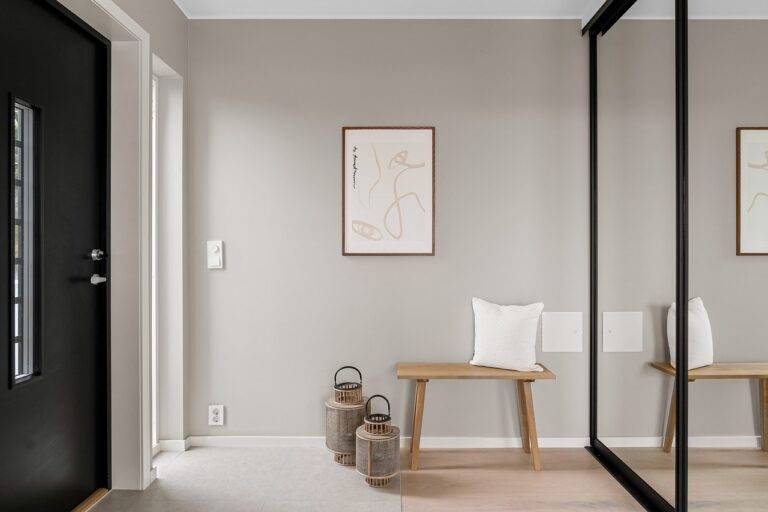Understanding the Impact of Feng Shui in Home Improvement
Feng Shui is an ancient Chinese practice that focuses on creating harmony and balance in one’s environment. It is based on the belief that the arrangement of objects in a space can affect the flow of energy, or chi, and influence one’s health, wealth, and overall well-being. By strategically placing furniture, decor, and other items in a room, Feng Shui aims to optimize the flow of positive energy and create a harmonious atmosphere.
One of the key principles of Feng Shui is the Bagua map, which divides a space into nine areas, each representing a different aspect of life such as wealth, relationships, and career. By using the Bagua map to determine which areas of a space correspond to different aspects of life, individuals can make adjustments to enhance the energy flow in those areas and improve various aspects of their life. Balancing the elements of water, wood, fire, earth, and metal is also crucial in Feng Shui to ensure a harmonious and balanced environment that promotes health, prosperity, and positive energy flow.
The History and Origins of Feng Shui
Feng Shui is an ancient Chinese practice that dates back thousands of years. Its origins can be traced to the agricultural society of ancient China, where people sought harmony with nature to ensure fertility and abundance in their lands. Over time, Feng Shui evolved from a practical approach to land management into a complex system of beliefs and principles that govern the placement of objects and structures in relation to the flow of energy, or qi.
One of the earliest known texts on Feng Shui is the “Book of Burial” or “Classic of Burial,” written during the Han Dynasty (206 BCE 220 CE). This text laid the foundation for the principles of Feng Shui as we know them today, emphasizing the importance of geomancy, or the study of the physical features of the environment, in determining the flow of qi and its impact on human life. As Feng Shui spread throughout China and beyond, various schools of thought emerged, each adding its own interpretations and practices to the ancient art of harmonizing energy for optimal well-being and prosperity.
The Five Elements in Feng Shui
In Feng Shui, the Five Elements play a crucial role in creating balance and harmony within a space. These elements are Wood, Fire, Earth, Metal, and Water, each representing a different aspect of nature and energy. It is believed that by incorporating these elements in the right proportions, one can achieve optimal flow of energy, known as Qi.
Wood symbolizes growth, vitality, and flexibility. When used in interior design, it can bring a sense of renewal and progress. Fire represents passion, energy, and transformation. Incorporating elements of Fire can add warmth and drive to a space. Earth signifies stability, nourishment, and protection. By integrating Earth elements, one can create a grounded and secure environment.etal embodies strength, clarity, and precision. Using Metal elements can bring a sense of organization and structure to a room. Water represents fluidity, intuition, and reflection. Incorporating Water elements can bring a sense of calmness and tranquility to a space.
Wood symbolizes growth, vitality, and flexibility
Fire represents passion, energy, and transformation
Earth signifies stability, nourishment, and protection
Metal embodies strength, clarity, and precision
Water represents fluidity, intuition, and reflection
Incorporating these Five Elements in the right balance is essential to create a harmonious environment that promotes positive energy flow. Each element interacts with the others in specific ways to either enhance or control their effects. For example:
Wood fuels Fire but can be absorbed by Earth
Fire melts Metal but can be extinguished by Water
Earth contains Water but can be shaped by Metal
Understanding how these elements interact with each other is key to effectively applying Feng Shui principles in your space. By strategically placing objects representing each element throughout a room or building, you can harness their energies to promote health, prosperity, and overall well-being.
Whether you are looking to revitalize your home or office space or simply seeking more balance in your life, incorporating the Five Elements of Feng Shui can have a profound impact on your surroundings. Experiment with different combinations and placements to find what works best for you and enjoy the benefits of a harmonious environment filled with positive Qi flow.
What are the five elements in Feng Shui?
The five elements in Feng Shui are wood, fire, earth, metal, and water. These elements are believed to interact with each other in different ways to bring balance and harmony to a space.
How are the five elements used in Feng Shui?
The five elements are used in Feng Shui to create a harmonious environment by balancing their energies within a space. Each element is associated with specific colors, shapes, and materials that can be incorporated into the decor of a room to promote positive energy flow.
Can I incorporate all five elements into my home?
Yes, it is recommended to incorporate all five elements into your home in order to create a well-balanced and harmonious space. You can do this by using a variety of colors, textures, and materials that represent each element throughout your home.
How can I determine which elements are lacking in my home?
You can determine which elements are lacking in your home by assessing the energy flow and overall feel of the space. If you feel unbalanced or stagnant in a certain area, it may be a sign that a particular element is missing and needs to be incorporated.
Are there specific guidelines for using the five elements in Feng Shui?
While there are general guidelines for using the five elements in Feng Shui, it is important to trust your intuition and personal preferences when incorporating them into your home. Experiment with different combinations and placements to find what works best for you and your space.







